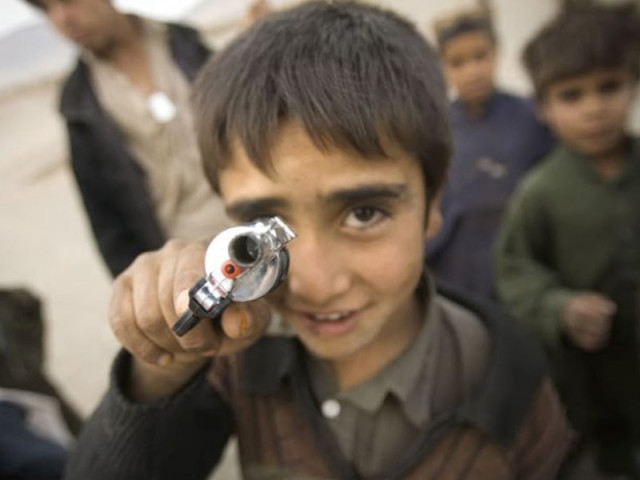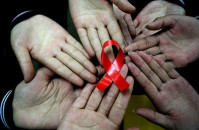First person perspective: The young criminals of underprivileged Karachi
Extortionists in Baldia rely on teenage boys for extortion and even target killing.

Glistening prospects of making money and becoming rich overnight without ever having to go to school attract these young minds. PHOTO: FILE
During my experience, I learnt that the rate of crime in most of these areas is higher as compared to the rest of Karachi. Many young boys, ranging in age from 12 to 18 years, are trained to leak secret information that could be helpful in executing crimes. These boys usually drop out of school after the eighth standard, and indulge in crimes, such as cellphone snatching, extortion, and even target killing.
At my institute, I see boys undergo a dramatic change in their attitude as soon as they turn 12. They start copying Bollywood actors who play the ‘bad guy’ in the movies, and they start eating gutka and paan, smoking cigarettes and taking drugs. Belonging to underprivileged families, these boys often cannot afford these drugs so they resort to crime to bear these expenses. After that, the one bad apple rots the entire community.
Their inspirations are usually notorious criminals wanted by the police. Glistening prospects of making money and becoming rich overnight without ever having to go to school attract these young minds. They admire goons and extortionists who go to the market and take whatever they like for free by threatening to kill people.

Recently, a gang from this area called ‘Gang War’ threatened a shop owner and demanded money. They put a gun on the man’s head when he refused. Luckily, the shopkeeper also had a gun under the counter. As soon he took it out, the gangsters fled. The police were able to find just only of them after the shopkeeper gave his testimony as an eyewitness; the rest are still at large. Rightfully fearing for his life, the shopkeeper wrapped up his entire business, closed down his shop and moved to another neighbourhood.
These gangsters often terrorise people by demanding large sums of money from owners of small businesses by sending them what is called a ‘parchi’ (chit) or token. The parchis are delivered by teenage boys who have just joined the gang. They are paid to carry out these duties. Once they have a pistol, it indicates complete security for them as they are now part of the gang.
My own uncle, a mechanic who lives in Ittehad Town, is a regular victim of these extortionists. He earns a mere three to four hundred rupees a day and lives in a small rented house. But he encounters the extortionists every day, who snatch his daily earnings as he returns home. Sadly, for my uncle there is no way out as there is only one route that leads from his shop to his house. Thus, everyday, he suffers silently.
Steering in the right direction
There is much to be done about this nation’s underprivileged youth to prevent them from getting involved in crime. We need many more volunteers to step forward and introduce long-term educational projects if there is any hope for our underprivileged youth. If we let this go on, over half of the Pakistani youth may become professional killers and criminals in the future.
The writer is a resident of Baldia Town and is running an institute called, YES Alumni Community Learning Centre
Published in The Express Tribune, May 29th, 2013.



















COMMENTS
Comments are moderated and generally will be posted if they are on-topic and not abusive.
For more information, please see our Comments FAQ